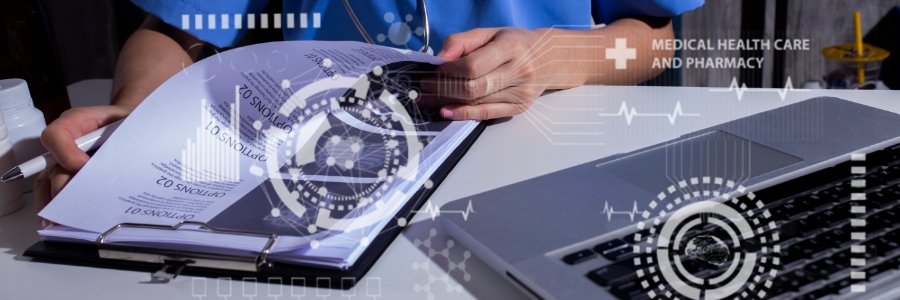Social media can help healthcare organizations advertise services, engage with patients, and foster a sense of community. However, one slip, and you might unintentionally break the Health Insurance Portability and Accountability Act (HIPAA) rules, which could lead to severe consequences.
Simple exercises to keep you fit while working from home

When people work from home, their daily physical activity often decreases. Unlike commuting to work and walking around the office, home-based work tends to involve a lot of sitting, which can negatively impact your physical health. To help you stay fit and active, here are some easy exercises you can do from the comfort of your home.
Unlocking the power of cloud computing in healthcare

Delivering high-quality patient care is a primary goal for any healthcare practice. Cloud computing supports this goal by offering reliability, convenience, and security. Here are the key benefits cloud computing offers to healthcare practices.
Effortless access to patient information
Gone are the days of searching through mountains of paperwork.
How blockchain is changing healthcare
Defending healthcare data: How to keep PHI safe from cyberattacks
The verdict on EHRs: Is the shift from paper records in healthcare worth it?

In recent years, there has been a significant push toward digitizing healthcare records. The traditional method of using paper charts and files to store patient information is quickly becoming outdated, with more and more healthcare providers making the switch to electronic health records (EHRs). But is this shift worth it? Are EHRs truly more valuable than paper records? Let’s take a closer look.
Data-driven interventions: Preventing readmissions before they happen
How is telemedicine revolutionizing healthcare?

The worlds of technology and healthcare are colliding like never before, and telemedicine is leading the charge. This article breaks down how telemedicine is changing the game by combining modern tech with traditional doctor visits — imagine virtual checkups, remote monitoring, and doctors who can talk to each other easily, all through a screen.
Choosing the right EHR hardware for your practice

The right electronic health record (EHR) hardware can make your practice more efficient, productive, and secure. It can streamline your workflow, improve patient care, and ensure compliance with the latest regulatory requirements. However, with so many options out there, how do you pick the right hardware for your practice?
This guide will delve into the pros and cons of various hardware options, empowering you to make an informed decision for your organization.
HIPAA and IT: The 4 key factors

There is a reason medical records are regarded as confidential. In addition to general respect for privacy, their illicit disclosure has caused social stigma and job discrimination for patients. In order to protect patient privacy, the Health Insurance Portability and Accountability Act (HIPAA) was enacted, granting patients final say over access to their health records.




